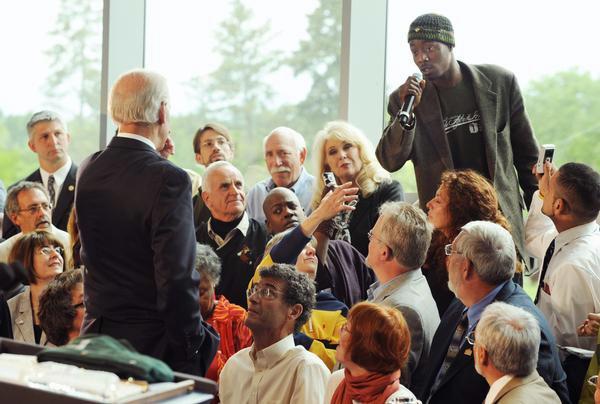
Helen H. Richardson, The Denver Post)
Vice President Joe Biden is on a victory tour, swinging through the country exulting the $787 billion stimulus package as a green job creator. In Denver, he boasted about the $11 billion for improving the electricity grid as well as the estimated 450,000 new jobs the bill will create. Despite the difficulty in defining a green jobs and counting the number the bill will create, spending such sums will no doubt lead to some employment.
Many businesses and potential entrepreneurs are scurrying around the stimulus package and the pending climate change regulation to find opportunities. The activity in Washington will no doubt create openings for traders, biofuel plants, and wind and solar power companies (as well as opportunities for the IT and health care sector ).
 However, there is also a downside of the stimulus bill and the pending climate and energy regulation. Professor Matt Kahn (my former advisor) states bluntly that “anti-carbon regulations will simultaneously create and destroy jobs.”
However, there is also a downside of the stimulus bill and the pending climate and energy regulation. Professor Matt Kahn (my former advisor) states bluntly that “anti-carbon regulations will simultaneously create and destroy jobs.”
Kahn, who also notes the importance of green, clean technologies, adds:
In the long run, a little creative destruction will likely be a good thing. The same regulations that might kill jobs in smokestack industries will act to stimulate a host of new manufacturing opportunities, ranging from energy-efficient household appliances to solar panels to energy-efficient vehicles.
As Kahn concludes:
Don’t count on clean technology to pull us out of the doldrums. The green revolution won’t happen overnight.
Biden may oversell the greening of the economy due to the stimulus bill, but his goals are worth pushing.